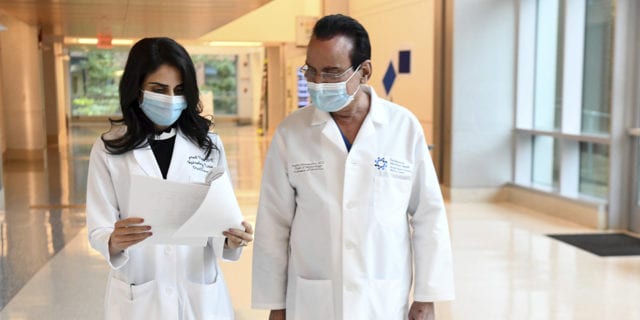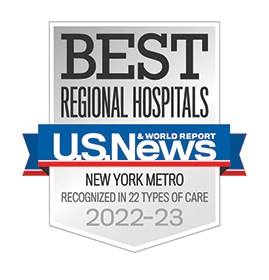One of Fastest Growing Kidney Transplant Programs in the U.S. at Hackensack University Medical Center
Patients more than twice as likely to receive a deceased kidney donor than at any other center in the tri-state area
Kidney transplant recipients at Hackensack University Medical Center benefit from shorter wait times for deceased donor kidneys and outcomes exceeding the national average. The center performed 112 kidney transplants in 2019.

The average wait for a deceased donor kidney transplant is less than two years, and transplant candidates are two times more likely to receive a kidney compared to patients at other transplant centers in the tristate area. Ninety-five percent of patients who receive a kidney from a deceased donor wait less than 3.8 years, with half of them receiving transplants in 1.3 years, about half the time compared with 95% of patients transplanted at other centers in New York, New Jersey and Pennsylvania.
The center’s survival rates are the best in these states, per the Scientific Registry for Transplant Recipients. The center has achieved a 96.19% one-year kidney survival rate, compared to 95.59 percent nationwide. Kidney transplant candidates are approximately five times less likely to die while waiting for a kidney transplant when compared to patients at other transplant centers. The team relies on the LifePort Kidney Transporter, a hypothermic preservation technology, to help increase a kidney’s viability and life span.
In 2018, the team successfully transplanted many patients 70 to 80 years old who were ineligible for transplant at other area centers. The pediatric kidney transplant program cares for infants as young as one year old and as small as 8 kg in weight. Through collaboration with Hackensack University Medical Center’s Bloodless Medicine Program, transfusion-free, safe kidney transplantation is available.
The program’s success lies in its staff expertise, technology application and embracement of best practices. The center’s board-certified transplant surgeons and nephrologists, along with other specialty physicians, transplant nurses and other professionals, partner closely with referring physicians, patients and families. Certified clinical transplant coordinators arrange appointments, address financial issues and connect patients with resources. The team’s Reducing Avoidable Readmissions Effectively (RARE) program monitors post-transplant patients after discharge to identify those who are at increased risk of readmission.

